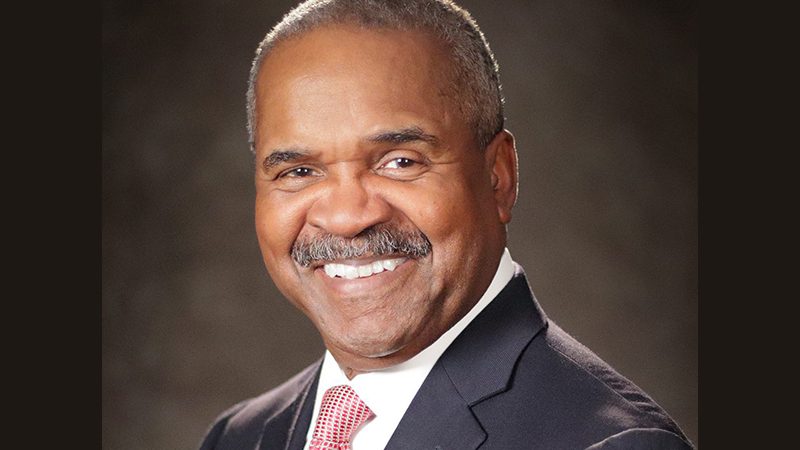
Is Jesus the Son of God? One fundamental question we need to ask when we read our Bible is whether that question is true or false. Perhaps we should start by asking if Jesus claimed to be God. Think about it: neither Buddha, Confucius, or Mohammed ever claimed to be God, yet Jesus said, “Before Abraham was, I AM” (John 8:58, NKJV). He was using the same language we find in Exodus 3:14 when God said to Moses, “I AM THAT I AM.… Say unto the children of Israel: I AM hath sent me unto you” (DARBY).
This fundamental belief is just one in a long line of creedal formulas developed over the centuries addressing the many controversies over the person of Jesus. One particularly serious conflict regarding the Son led to the division of the church into Western and Eastern Christianity, led by the Pope in the West and the Orthodox Patriarch in the East.
The reason? One word, filioque, meaning “and the Son,” was added to the creed. The argument was over whether the Holy Spirit proceeds from the Father or from the Son as well (filioque). The argument was so severe that it split the church!1
Behind all these arguments lies the question of who Jesus was. The official Fundamental Belief statement summarizes the life, death, resurrection, and return of Jesus.2 In this it is rather like the first three Gospels that give us the same kind of information. But like John, it’s important to ask, “What does all this mean?”
During His lifetime Jesus was the subject of much speculation as to His identity. He even invited such analysis by asking His disciples “Who do people say the Son of Man is?” The answers included John the Baptist, Elijah, Jeremiah, or one of the other prophets. But then Jesus puts them on the spot and asks, “Who do you say I am?” To which Peter replies, “You are the Messiah, the Son of the living God” (Matthew 16: 13-16, NIV).
Sometimes you read the assertion that in the Gospels Jesus never claimed to be God. He may not have said, “I am God,” but His words and acts demonstrate His divinity. One of the best examples of Jesus’ pre-existence is His reply to the Jewish leaders who were so proud to be Abraham’s descendants. He told them, “Before Abraham was born, I am!” (John 8:58, NIV). Not only was Jesus saying He existed before Abraham, but He also was referring to Himself using the name for God, “I am.” (See Exodus 3:14.) His hearers were so incensed at what they saw as blasphemy that they immediately tried to stone Him to death.
Similarly, when Jesus was confronted by the Jewish leaders for healing on the Sabbath, He told them “My Father is always at his work to this very day, and I too am working.” Then John gives this comment: “For this reason they tried all the more to kill him; not only was he breaking the Sabbath, but he was even calling God his own Father, making himself equal with God” (John 5:17-18, NIV). There’s no question that they understood Jesus was claiming to be divine.
So what do we say about the Son? How do we understand Jesus’ nature? While early Adventists did not accept the doctrine of the Trinity (as we saw under the relevant article on Fundamental Belief #2 in the March issue of the Recorder), they did not deny the divinity of Jesus.3 As C.S. Lewis has observed,4 when it comes to answering the question as to Jesus’ identity, either Jesus was a lunatic or a liar—or He was who He said He was. He cannot be dismissed as an interesting philosopher or an ethical teacher.
Early Adventist writer E.J Waggoner wrote, “It is idle, therefore, for anybody to deny the Divinity of Christ, and at the same time to say that He was a good man. Good men do not make false claims. If Jesus were not Divine, He would have been an impostor. But He was good, absolutely good, the embodiment of all goodness; and therefore He was just what He professed to be, the Son of God.”5
Jesus says of Himself, “I have come down from heaven not to do my will but to do the will of him who sent me” (John 6:38, NIV). “I came from the Father into the world, and now I will leave the world and return to the Father” (John 16:28, NLT). There can be no doubt as to His origin and nature. The question we all must ask ourselves is, “What does this mean to me?”
Jesus points to the relationship He wants to have with each of us. “Now you are my friends, since I have told you everything the Father told me” (John 15:15, NLT). He wants us to have eternal life. (See John 12:50.) His promise to us is this: “I am telling you the truth: those who hear my words and believe in him who sent me have eternal life. They will not be judged, but have already passed from death to life” (John 5:24, GNT).
So we can leave all the theological arguments about the Son to one side and concentrate on the Jesus who saves and heals. This is the real message of this fundamental belief. The very existence of the Son demands a response from each and every one of us.
As He anticipated His death and resurrection, the basis for our salvation, Jesus explained, “When you have lifted up the Son of Man, then you will know that I am he and that I do nothing on my own but speak just what the Father has taught me” (John 8:28, NIV). The Son comes to save.
In the end, as it is with all 28 fundamental beliefs, they are meant to be much more than a doctrine or a creed—they are to be part of our experience. They must inform how we live our lives. The question is: Am I lifting the name of Jesus?
_____________________________
Carlos Camacho is president of the Nevada-Utah Conference.
1 https://orthodoxwiki.org/Filioque.
2 https://www.adventist.org/son/.
3 For example, Ellen White wrote, “There is not a people on earth who hold more firmly to the truth of Christ's pre-existence than do Seventh-day Adventists” (“An Appeal for the Australasian Field,” Review and Herald, Dec. 5, 1893, p. 757). James White wrote, “We do not deny the divinity of Christ. We delight in giving full credit to all those strong expressions of Scripture which exalt the Son of God” (“Western Tour,” Review and Herald, June 6, 1871, p. 196).
4 “I am trying here to prevent anyone saying the really foolish thing that people often say about Him: “I’m ready to accept Jesus as a great moral teacher, but I don’t accept His claim to be God.” That is the one thing we must not say. A man who was merely a man and said the sort of things Jesus said would not be a great moral teacher. He would either be a lunatic—on the level with the man who says he is a poached egg—or else he would be the Devil of Hell. You can shut him up for a fool, you can spit at Him and kill Him as a demon; or you can fall at His feet and call Him Lord and God. But let us not come with any patronizing nonsense about His being a great human teacher. He has not left that open to us. He did not intend to.” (C.S. Lewis, Mere Christianity [New York: Touchstone/Simon & Schuster, 1996], pp. 55-56.)
5 E.J. Waggoner, “The Performing of Impossibilities,” The Present Truth, Nov. 22, 1900, p. 738.
Creencia fundamental # 4: el Hijo
Por Carlos Camacho
Es Jesús el Hijo de Dios? Una pregunta fundamental que debemos hacernos cuando leemos la Biblia es si la respuesta a esa pregunta es sí o no. Tal vez deberíamos comenzar preguntando si Jesús afirmó ser Dios. Hay que tener presente que ni Buda, ni Confucio, ni Mahoma afirmaron ser Dios, sin embargo, Jesús dijo: «Antes que Abraham fuese, YO SOY» (Juan 8:58). Él estaba usando el mismo lenguaje que encontramos en Éxodo 3:14 cuando Dios le dijo a Moisés: «YO SOY EL QUE SOY... Di a los hijos de Israel: YO SOY me ha enviado a ustedes» (RVC).
Esta creencia fundamental es solo una de una larga lista de fórmulas de credo desarrolladas a lo largo de los siglos que abordan las muchas controversias sobre la persona de Jesús. Un conflicto particularmente grave con respecto al Hijo llevó a la división de la iglesia en el cristianismo occidental y oriental, liderado por el Papa en Occidente y el Patriarca ortodoxo en Oriente.
¿La razón? Una palabra, filioque, que significa «y el Hijo», fue añadida al credo. La contienda tuvo que con con si el Espíritu Santo procede del Padre o también del Hijo (filioque). ¡La discusión fue tan severa que dividió a la iglesia!1
Detrás de todos esos argumentos se encuentra la pregunta de quién fue Jesús. La declaración oficial de esta Creencia Fundamental resume la vida, la muerte, la resurrección y el regreso de Jesús.2 En eso es más bien como los tres primeros Evangelios que nos dan el mismo tipo de información. Pero al igual que Juan, es importante preguntarse: «¿Qué significa todo eso?»
Durante su vida, Jesús fue objeto de mucha especulación en cuanto a su identidad. Incluso invitó a tal análisis al preguntar a sus discípulos: «¿Quién dice la gente que es el Hijo del Hombre?» Las respuestas incluían a Juan el Bautista, Elías, Jeremías o alguno de los otros profetas. Pero entonces Jesús los pone en aprietos y les pregunta: «¿Quién dicen ustedes que soy?’ A lo que Pedro responde: «Tú eres el Mesías, el Hijo del Dios vivo» (Mateo 16:13-16).
A veces leemos la afirmación de que en los evangelios Jesús nunca afirmó ser Dios. Puede que no haya dicho: «Yo soy Dios», pero sus palabras y actos demuestran su divinidad. Uno de los mejores ejemplos de la preexistencia de Jesús es su respuesta a los líderes judíos que estaban tan orgullosos de ser descendientes de Abraham. Él les dijo: «Antes de que Abraham fuese, yo soy» (Juan 8:58). Jesús no solo estaba diciendo que él existía antes de Abraham, sino que también se estaba refiriendo a sí mismo usando el nombre de Dios, «Yo soy» (ver Éxodo 3:14). Sus oyentes estaban tan indignados por lo que consideraban una blasfemia que inmediatamente trataron de apedrearlo.
De manera similar, cuando Jesús fue confrontado por los líderes judíos por sanar en sábado, les dijo: «Hasta ahora mi Padre trabaja, y yo también trabajo». Entonces Juan hace este comentario: «Por esa razón trataron de matarlo con más ahínco; no solo quebrantaba el sábado, sino que incluso llamaba a Dios su Padre, haciéndose igual a Dios» (Juan 5:17-18). No hay duda de que ellos entendieron que Jesús estaba afirmando ser divino.
Entonces, ¿qué decimos acerca del Hijo? ¿Cómo entendemos la naturaleza de Jesús? Mientras los primeros adventistas no aceptaron la doctrina de la Trinidad (como vimos en el artículo sobre la Creencia Fundamental #2 en la edición de marzo), no negaron la divinidad de Jesús.3 Como ha observado C.S. Lewis,4 cuando se trata de responder a la pregunta sobre la identidad de Jesús, o Jesús era un lunático o un mentiroso, o era quien decía ser. No se le puede descartar como un filósofo interesante o un maestro de ética.
El escritor adventista E. J. Waggoner escribió: «Está por demás, por lo tanto, que alguien niegue la divinidad de Cristo, y al mismo tiempo diga que él era un buen hombre. Los buenos hombres no hacen falsas afirmaciones. Si Jesús no fuese divino, hubiese sido un impostor. Pero él era bueno, absolutamente bueno, la encarnación de toda la bondad; y, por lo tanto, era exactamente lo que profesaba ser, el Hijo de Dios».5
Jesús dice de sí mismo: «No he descendido del cielo para hacer mi voluntad, sino para hacer la voluntad del que me envió» (Juan 6:38). «Vine del Padre al mundo, y ahora dejaré el mundo y volveré al Padre» (Juan 16:28). No puede haber duda en cuanto a su origen y a su naturaleza. La pregunta que todos debemos hacernos es: «¿Qué significa eso para mí?»
Jesús señala la relación que quiere tener con cada uno de nosotros. «Ahora ustedes son mis amigos, ya que les he dicho todo lo que el Padre me ha dicho» (Juan 15:15). El Hijo quiere que tengamos vida eterna (ver Juan 12:50). Su promesa para nosotros es esta: «Les digo la verdad: los que oyen mis palabras y creen en el que me envió, tienen vida eterna. No serán juzgados, sino que ya han pasado de muerte a vida» (Juan 5:24).
Así que podemos dejar a un lado todos los argumentos teológicos sobre el Hijo y concentrarnos en el Jesús que sana y salva. Ese es el verdadero mensaje de esta creencia fundamental. La existencia misma del Hijo exige una reacción de todos y cada uno de nosotros.
Al anticipar su muerte y su resurrección —la base de nuestra salvación— Jesús explicó: «Cuando ustedes hayan levantado al Hijo del Hombre, sabrán entonces que yo soy, y que nada hago por mí mismo, sino que hablo según lo que el Padre me enseñó» (Juan 8:28). El Hijo vino a salvar.
A fin de cuentas, como ocurre con las 28 creencias fundamentales, están destinadas a ser mucho más que una doctrina o un credo: deben ser parte de nuestra experiencia. Deben informar cómo vivimos. La pregunta es: ¿estoy ensalzando el nombre de Jesús?
_____________________________
Carlos Camacho es presidente de la Nevada-Utah Conference.
1 https://orthodoxwiki.org/Filioque.
2 https://www.adventist.org/son/.
3 Por ejemplo, Ellen White escribió: «No hay un pueblo en la tierra que se aferre más firmemente a la verdad de la preexistencia de Cristo como los adventistas del séptimo día» (“An Appeal for the Australasian Field”, Review and Herald, 5 de diciembre de 1893, p. 757). James White escribió: «No negamos la divinidad de Cristo. Nos deleitamos en dar pleno crédito a todas esas firmes expresiones de las Escrituras que exaltan al Hijo de Dios» (“Western Tour”, Review and Herald, 6 de junio de 1871, p. 196).
4 «Estoy tratando de evitar que alguien diga la bobería que la gente a menudo dice acerca de él: “Estoy dispuesto a aceptar a Jesús como un gran maestro moral, pero no acepto su afirmación de ser Dios”. Eso es lo único que no debemos decir. Alguien que fuese simplemente un hombre y dijese el tipo de cosas que Jesús dijo, no sería un gran maestro moral. O bien sería un lunático —al mismo nivel que el hombre que dice que es un huevo escalfado— o sería el Diablo del Infierno. Puedes tildarlo de tonto, puedes escupirlo y matarlo como a un demonio; o puedes postrarte a sus pies y llamarlo Señor y Dios. Pero no vengamos con ninguna tontería condescendiente acerca de que él es un gran maestro. No nos ha dejado esa opción. No era su intención». (C. S. Lewis, Mere Christianity [New York: Touchstone/Simon & Schuster, 1996], pp. 55-56.)
5 E. J. Waggoner, “The Performing of Impossibilities”, The Present Truth, 22 de noviembre de 1900, p. 738.





